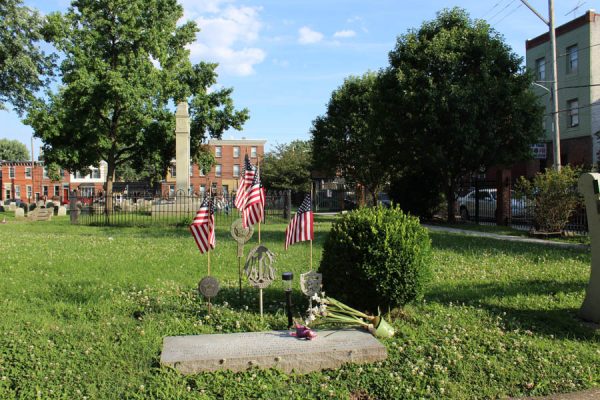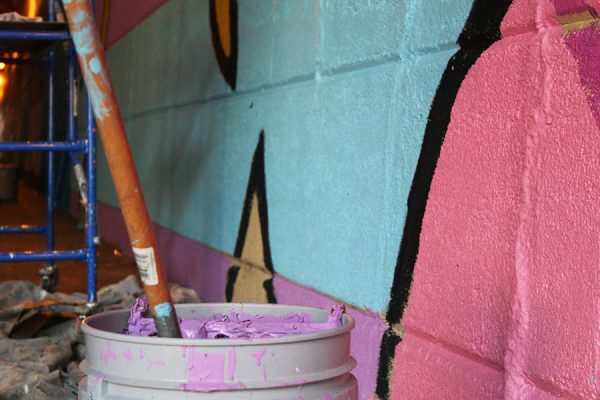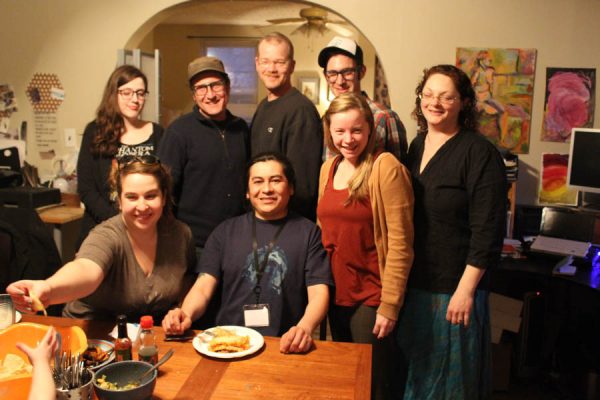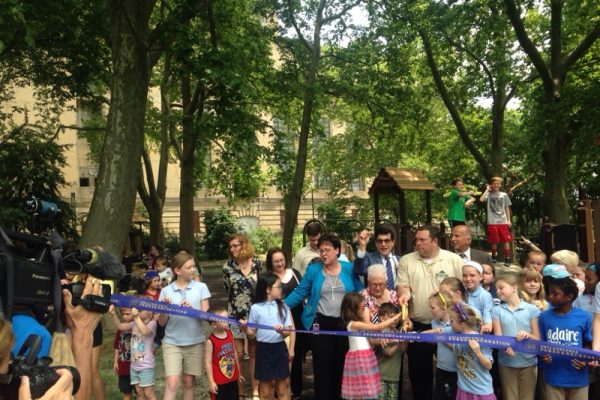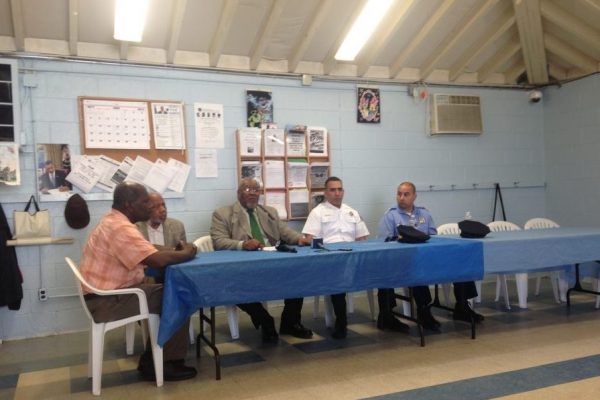A Taste of the Old Country: Jovan’s Place Serves Up Authentic Eastern European Cuisine
I have a confession to make: For many years, I believed Jovan’s Place (2327 E. York St.) was an authentic Polish restaurant. In all actuality, Jovan’s Place is an authentic Yugoslavian/Serbian restaurant. While I was still on the correct side of the European continent, I was wrong about the style of cuisine served at this cozy little corner eatery.
I’m not the only one to fall victim to the confusion surrounding the style of cuisine they serve. According to owner Jovan Bokun, another news outlet wrote a piece about them and described them as a Czechoslovakian restaurant. Though a Pilsner-Urquell does go well with goulash and schnitzel, the Bokuns are not Czech.
The history of Yugoslavia and Serbia itself is confusing. Yugoslavia, which broke apart in the early 90s, was comprised of several small countries along the eastern shore of the Adriatic Sea. They’ve been fought over for thousands of years and the people who live in each of these countries have very unique cultures.
Yelp lists Jovan’s Place as an Austrian restaurant. That’s partially true if you go back to pre WWI times, where one of the most important events that led up to the beginning of WWI occurred.
In June 1914, Archduke Franz Ferdinand, the ruler of the Austro-Hungarian empire, was touring the city of Sarajevo. Ferdinand had annexed the surrounding region, much to the dismay of the Serbians who wanted it to become part of their own nation. On June 28, 1914, Ferdinand and his wife Sophie were shot by Gavrilo Princip, a Serbian terrorist. Both died and the event is widely considered to be the catalyst for the beginning of WWI.
According to the State Department, Yugoslavia was created after WWI when the Austro-Hungarian empire, which was aligned with Germany, was divided. Areas of the region which were controlled by Croats, Slovenians, and Bosnians joined with what was called the Serbian Kingdom. Owners Jovan and Dobrila Bokun are from outside the city of Belgrade in Serbia.
The couple was married in Yugoslavia and have been together for 54 years, but they go back even farther than that. The two were childhood friends and have now spent the majority of their lives living and working together.
“Everybody is surprised that (we) can work together,” Dobrila said.
“I fight a guy, I don’t wanna fight a woman,” Jovan joked.
Jovan was a cook in the Yugoslavian army and cooked for thousands of troops at a time. “We used to get big kitchen, we used to cook for 1800 people,” Jovan said. “In the service, it’s like a butcher in Yugoslavia. I used to make salami, head cheese, liverwurst, bloodwurst.”
Jovan also remembers running his own business in Yugoslavia. “I used to have my own business in Yugoslavia. I had a butcher, not a butcher shop. I used to buy livestock steers, pigs, oxen sheep calves…I used to work lot of hours,” Jovan said.
The Bokuns began their American dream when they moved to the Bronx in 1970. “I came here June 24th. On the 25th I start working, next day I start working,” Jovan said. “A couple hours before, I came from airport.” Jovan and his wife also lived in Brooklyn before a visit to a friends house in Elkins Park got them thinking about life in Philadelphia.
Not long after that, the Bokuns bought a house in the Hunting Park section of Philadelphia and Jovan began working at Fisher’s Restaurant. Jovan spoke fondly of his years at the landmark German restaurant on North Broad Street near Temple Hospital. “I enjoyed working there,” Jovan said.
According to Jovan, he often worked a second job at a slaughter house. According to him he also spent time working at Boar’s Head in New York and Leidy’s Pork formerly in Souderton, PA. He says he always wanted to be a butcher. “I was 14 and I started learning for the butcher,” Jovan said. “My father was a farmer, we used to get horses. I said I don’t wanna be the farmer, I wanna be the butcher. My uncle was a butcher. I wanna be the butcher. I love it.”
Jovan was still working at Fisher’s in 1987 when he bought Jovan’s Place. According to him, he had always wanted to run his own restaurant. “My dream was, I wanna build a restaurant,” Jovan said. “I wanna cook, we wanna cook something that nobody else cook.”
Since then, the Bokuns have seen the neighborhood change and old friends pass away, but welcome all the new hungry faces that walk through their doors. “We used to know a lot of people… a lot of people die. A lot of good my friends in Fishtown… Polish, Irish — those people, they passed away. Those were good people, good friends,” Jovan said.
Now on to the food: If you go to Jovan’s Place, you have to try the goulash. Jovan’s take on this classic dish starts with chopped onions cooked down about halfway, then he starts cooking the meat. “Meat take a hour and a half, and a couple hours just take the onions,” Jovan said. “All together it’s a three and a half, four hours to cook. It’s never just fast.” Jovan’s goulash is served two ways, over pasta or mashed potatoes. According to Dobrila, it’s traditionally served over mashed potatoes, or homemade pasta’s similar to egg noodles.
Jovan’s uses tri-color rotini, and places generous chunks of beef perfectly cooked in the goulash sauce. The hunks of beef are super tender and pull apart as you dig in. The plate of goulash is humongous, and I had food for two days after, so there is little to no chance of leaving hungry after this dish, but that’s what the Bokuns want.
We also sampled Dad’s Bean Soup. Jovan’s starts out with dried great northern beans. According to them, they prefer the dried beans over canned, and hand pick through them to ensure their quality. After they’re rehydrated, the beans are simmered in a rich vegetable stock of onions carrots and herbs. Jovan adds a smoked rib give it just enough smokiness to let you know this isn’t vegetarian.
Other favorites include their Jovan’s Schnitzel which is comprised of lean pork rolled up with imported ham and two cheeses before being fried, and the Pljescavica or “Yugo-Style Burger.” This oversized bunless burger is cooked medium on the inside, with a perfect char on the outside. It’s served with a generous hunk of feta cheese and tomatoes. Don’t worry about the bread. Jovan’s will give you more than enough cuts of bread for you to smother their homemade pesto on before the main entree arrives.
Another staple here is the stuffed cabbage. It takes about four weeks to sour the cabbage leaves Jovan uses to wrap the beef pork and rice mixture. Jovan makes the “Sour Head,” which is basically sauerkraut that isn’t shredded at his home. According to him, he drills out the core, and soaks the cabbage in a mixture of salt and water.
According to Jovan, making sour head was something everyone did in Yugoslavia. “That’s what we did in Yugoslavia. Everybody in Yugoslavia for the house, they do sour heads,” Jovan said. “Four weeks and done,” Dobrila added.
As we chatted Dobrila offered to me a cup of “Yugo-Style” coffee. As an avid coffee drinker, this was new territory for me. She explained that the coffee is not filtered, and brewed together in a small metal container. Dobrila served it on a platter with two lumps of sugar. According to Jovan, they buy their own beans roast them and grind them to make the Yugo-Style coffee. “They have to be fine grind,” Dobrila said
The coffee is thick. It was similar to espresso only because it was strong coffee, but Jovan would not say it was anything other than Yugo-Style. I enjoy it black, but a little sugar sweetens it up and compliments the bitter coffee taste. If you enjoy rich, exotic coffees, this is surely one to try, and the unique brewing technique adds to the restaurant’s made-to-order experience. “We make every order separate,” Dobrila said.
Jovan and Dobrila both enjoy cooking. “You have to like to cook,” Dobrila said. “He cook everything that we cook over there. Stuffed cabbage, chicken soup goulash.” Jovan says he likes to keep his menu simple, and loves to cook for his customers. “We can cook a lot of different things, but it’s gonna be too big a menu and kitchen is too small,” Jovan said.
Jovan says the many years of working early are starting to take a toll on him. He’s not sure how much longer they will be able to keep the restaurant open, but that’s something they don’t think about too often. The Bokuns would rather see the look on their guests faces as they sit back after a delicious Yugo-Style meal. “I like to make Jovan’s (schnitzel) goulash, pork cutlet… We like to cook everything. I don’t know for how long we gonna cook, we 75,” Jovan said. “We never got a complaint.”
THANKS FOR SUPPORTING SPIRIT NEWS!
Please follow this link to visit Amazon.com through our affiliate portal. It’s the same Amazon.com you know and love, but when you shop through this link we receive a small cut at no added cost to you!
By using this link to do your normal Amazon.com shopping, you’ll be supporting your local newspaper.






